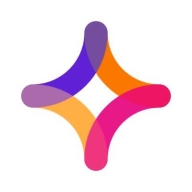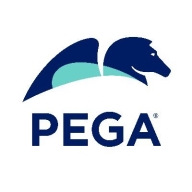

Pega Platform and Jitterbit Vinyl compete in the business process management and application development segment. Pega stands out for its enterprise-level automation, and Jitterbit is noted for its flexibility in integrating multiple data sources, making it particularly adept in environments demanding rapid development and deployment.
Features: Pega Platform offers powerful case management, robust workflows, and seamless cloud integration, making it ideal for major enterprises. Jitterbit Vinyl is lauded for its flexibility, rapid application development capabilities, and support for connecting multiple data sources, which is ideal for faster deployment of customized applications without the need for coding.
Room for Improvement: Pega users have reported complexity in usage and require specialized skills for effective operation, suggesting improvements in AI, machine learning capabilities, and customer support. Jitterbit users seek enhancements in UI aesthetics, reporting capabilities, and documentation quality to improve user experience and ease of use.
Ease of Deployment and Customer Service: Pega Platform supports diverse deployment options, offering strong technical support, but faces occasional delays with complex issues. Jitterbit Vinyl provides ease of deployment but encounters challenges with handling large data sets and complex reports. Although customer service is positive for both, responsiveness can be improved.
Pricing and ROI: Pega Platform is expensive, with high licensing costs that may deter smaller enterprises, yet promises significant ROI for large-scale implementations. Jitterbit Vinyl offers a cost-effective licensing model, appealing to companies seeking scalability without rising costs, and is known for competitive pricing alongside flexibility and efficiency.
The technical support from Pega is very low, rating a one or two out of ten.
I never needed support from the platform standpoint, but if additional features are required, we have regular meetings with the product team for feedback.
Pega's technical support team is very helpful.
Pega introduced Constellation, which allows a user to build a more engaging visual experience.
My learning curve in robotics has been challenging.
Pega is priced higher than open-source options like Flowable but is suitable for large-scale industries like banking and insurance.
The pricing is expensive, and this is an issue.
Management capabilities such as dashboards.
Pega Platform is excellent for enterprise-level solutions with integrations to entire systems, including case management, service orchestration, CRM, decision-making capabilities, digital process automation, and AI-driven functionalities.

Jitterbit's Vinyl (previously Zudy) is an enterprise low-code application platform that makes it easy to build scalable, end-to-end apps that are easily integrated with new and existing systems. Designed for large enterprises to solve complex business problems at scale, Vinyl empowers anyone to create fully integrated, bi-directional applications in weeks. Powerful enough for Full Stack Developers, intuitive enough for Citizen Developers/Business Technologists, Vinyl empowers you to create secure apps that run on any device, automate any business process, and integrate any data source without coding.
Create fully integrated, bi-directional applications
Utilize guided development and visual rule builders
Predictable pricing with no per-user fees
Integrate the entire ecosystem without impacting source data
Protect apps with enterprise-grade security
Integrate real-time data
Deploy apps via enterprise cloud, on-premise or hosted
Improve customer digital experience
For more information: www.jitterbit.com/product/viny
Pega Platform facilitates business process management, case management, and workflow automation for industries like banking, insurance, and healthcare. It supports digital transformation and customer service enhancements with its low-code capabilities and seamless integrations.
Pega Platform enables users to create efficient systems for case management, financial operations, and digital transformations. It provides tools for client onboarding, quoting, claims processing, customer experience improvements, and content management. Pega's low-code approach allows for the automation of complex processes, making it suitable for enterprises looking for adaptability and rapid deployment. While it offers strong real-time analytics and decision automation, users acknowledge challenges in user interface, integration, and performance aspects. High costs and a learning curve need attention, and enhancements in AI features and cloud services are desired.
What are the key features of Pega Platform?In banking, Pega Platform automates loan processing, accelerates customer onboarding, and manages compliance. Insurance companies benefit from streamlined claims processing and policy management. Healthcare sectors use the platform for patient engagement and care coordination, enabling organizations to adapt quickly to changing industry requirements.
We monitor all Rapid Application Development Software reviews to prevent fraudulent reviews and keep review quality high. We do not post reviews by company employees or direct competitors. We validate each review for authenticity via cross-reference with LinkedIn, and personal follow-up with the reviewer when necessary.